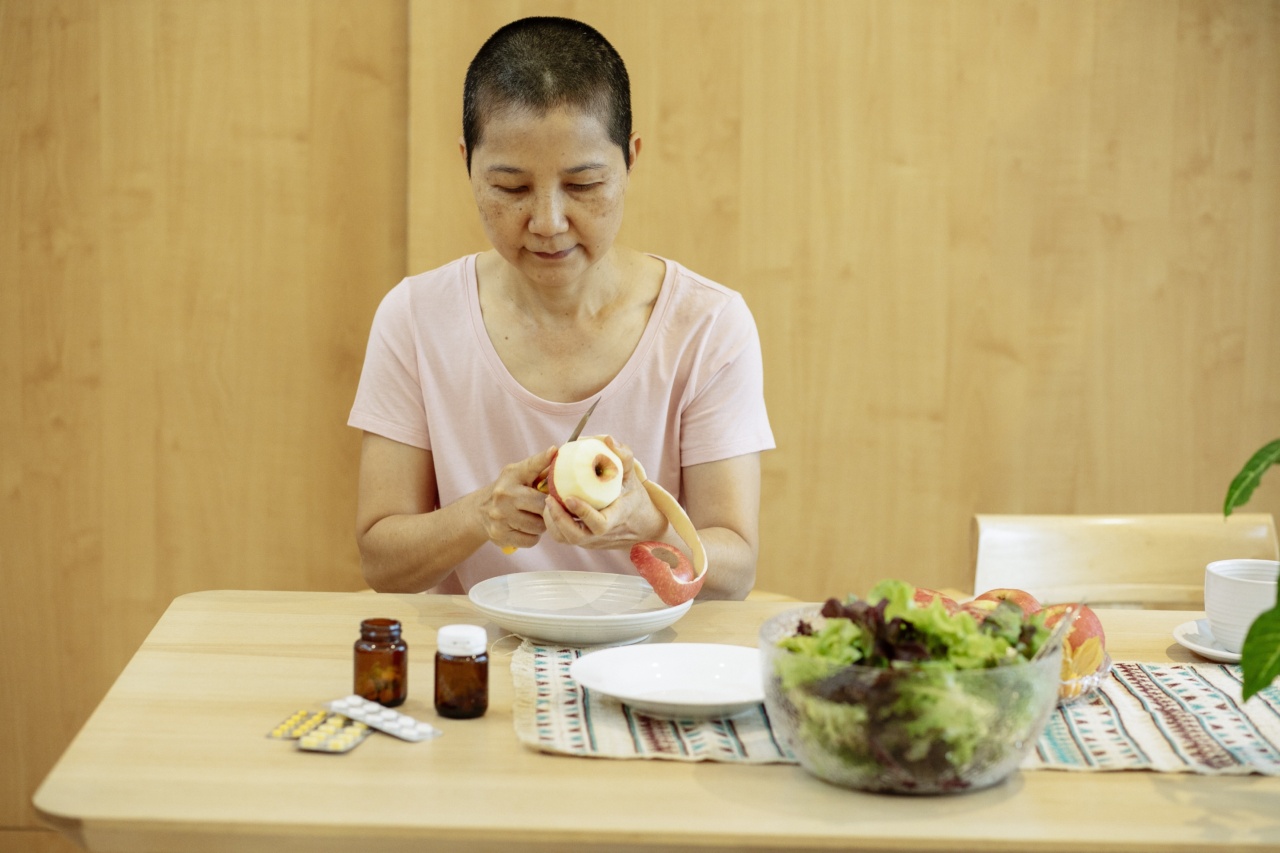In recent years, there has been a growing interest in organic food as a means to prevent and reduce the risk of cancer.
While research on this topic is ongoing, there is a growing body of evidence to suggest that organic food may indeed play a role in cancer prevention. In this article, we will explore the science behind organic food and its potential impact on cancer.
Understanding Organic Food
Organic food refers to crops or livestock that are grown or raised without the use of synthetic pesticides, fertilizers, or genetically modified organisms (GMOs).
Organic farming practices promote soil health, biodiversity, and sustainable agricultural methods. Organic food is typically produced using natural fertilizers, such as compost or manure, and relies on natural pest control methods, like crop rotation or the use of beneficial insects.
Reduced Pesticide Exposure
One of the main reasons why people choose organic food is to reduce their exposure to synthetic pesticides. Conventional farming relies heavily on the use of chemical pesticides to control pests and diseases.
These pesticides are designed to kill or repel insects, fungi, or other harmful organisms that can damage crops.
Several studies have linked exposure to pesticides with an increased risk of certain types of cancer, such as non-Hodgkin lymphoma, leukemia, breast cancer, and prostate cancer.
Pesticides, especially organophosphates and organochlorines, can disrupt the hormonal balance in the body and have been found to possess carcinogenic properties. By choosing organic food, individuals can minimize their exposure to these potentially harmful chemicals.
Higher Nutrient Content
Organic food has been found to contain higher levels of certain nutrients compared to conventionally grown food.
A study published in the British Journal of Nutrition analyzed the nutrient content of organic and non-organic crops and found that organic crops had higher levels of vitamin C, iron, magnesium, and phosphorus.
Nutrient-rich diets have been linked to a reduced risk of cancer. For example, consuming foods rich in antioxidants, such as vitamin C, can help neutralize harmful free radicals that can damage DNA and lead to the development of cancer.
By opting for organic food, individuals may increase their intake of these beneficial nutrients and potentially decrease their risk of developing cancer.
Lower Exposure to Antibiotics and Hormones
In conventional animal agriculture, antibiotics and hormones are commonly used to promote growth and prevent diseases.
The routine use of antibiotics in animals raised for food has raised concerns about the development of antibiotic-resistant bacteria, which can pose a significant threat to human health.
Some studies have suggested a link between antibiotic use in animal agriculture and an increased risk of cancer. Antibiotics may disrupt the balance of gut bacteria, which plays a crucial role in immune system function and overall health.
By consuming organic meat and dairy products, individuals can reduce their exposure to antibiotics and potentially decrease their risk of cancer.
Moreover, organic animal products have been found to contain lower levels of hormones, such as estrogen-like compounds.
High levels of estrogen in the body have been associated with an increased risk of hormone-related cancers, such as breast and prostate cancer.
Controversies and Limitations
While there is evidence to suggest that organic food may play a role in cancer prevention, it is essential to acknowledge the controversies and limitations surrounding this topic.
Some critics argue that the existing research is still inconclusive and that the differences in nutrient content between organic and conventional food are negligible.
Additionally, organic food tends to be more expensive than conventionally grown food, making it less accessible to certain populations.
This price disparity may undermine the goal of providing healthier food options to all individuals, regardless of their socioeconomic status.
Furthermore, it is crucial to note that choosing organic food alone cannot guarantee complete protection against cancer. Cancer development is influenced by a combination of genetic, environmental, and lifestyle factors.
A well-balanced diet, regular exercise, and other healthy lifestyle choices are equally vital in reducing the risk of cancer.
Conclusion
While the science behind organic food and cancer prevention is still evolving, there is a growing body of evidence suggesting that choosing organic food may contribute to reducing the risk of cancer.
By reducing exposure to synthetic pesticides, increasing nutrient intake, and minimizing antibiotic and hormone exposure, organic food may provide added benefits compared to conventionally grown food.
However, it is important to remember that organic food is just one piece of the puzzle in cancer prevention.
A holistic approach to health, including regular exercise, a balanced diet, and other healthy habits, is crucial for maintaining overall well-being and reducing the risk of cancer.






























